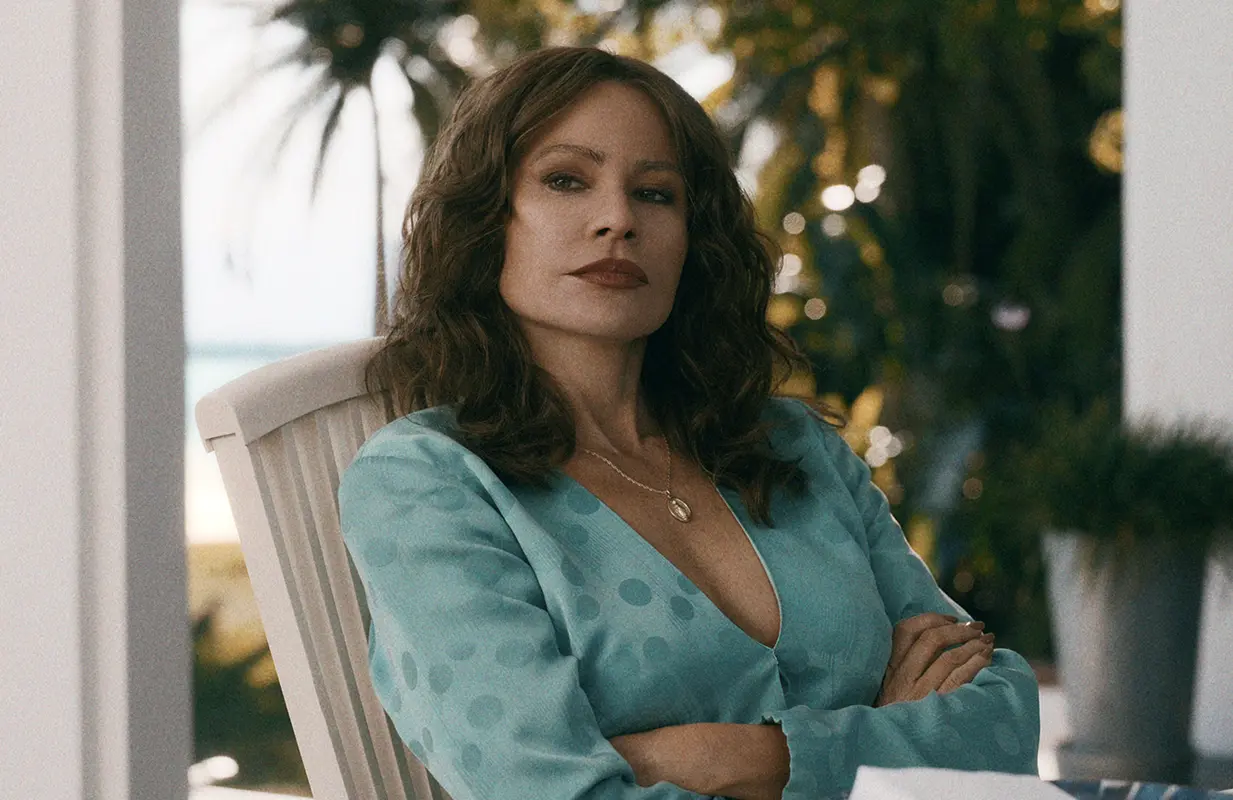Griselda Turns the Cocaine Godmother Into a Girlboss Hero
-
 Sofía Vergara in Griselda (Photo: Netflix)
Sofía Vergara in Griselda (Photo: Netflix)Griselda Blanco, known as "the godmother" of cocaine trafficking, was many things: an ambitious businesswoman who tapped into a wealthy, white market in Miami; a ruthless cartel boss linked to hundreds of murders; a former sex worker and single mother who went to extreme lengths to protect her family. But for all her success in the male-dominated drug trade, Griselda was not some sort of aspirational hero — yet that's exactly what Netflix's new limited series makes her out to be.
Produced by the team behind Narcos, Griselda places the drug lord's story in a familiar framework: that of the girlboss who uses her cunning to build an empire in a sexist world. The show's "cartel drama, but make it feminist" positioning is clear from its opening scene, in which Griselda (Sofía Vergara, hardly recognizable under a mountain of prosthetics) frantically searches her bathroom for something to stanch the blood from a gunshot wound. Hands shaking, she grabs a menstrual pad and tapes it to her abdomen with Band-Aids; minutes later, she's emptying a safe filled with cash and passports and fleeing Medellín for Miami with her three sons.
Griselda arrives in Miami with one kilo of cocaine, which she uses to get her business off the ground. She's experienced enough to know that her product is superior to what's currently on the streets — though Griselda downplays it, the real Blanco ran a major operation out of New York in the 1960s, just a few years before the events of the series — and she uses it to her advantage, doling out free samples at high-end bars, country clubs, and gyms. Before long, Griselda has established a small but mighty enterprise in a previously untapped market, with young women, mostly sex workers, moving cocaine in batches from Colombia to Miami and distributing it to people who work for the "rich white assholes" of Miami: the tennis coaches, valets, and aerobic instructors who power elite society.
Griselda's plan is a roaring success, but every time she's about to reach new heights, she's brought back down to earth by one of the hard-headed, misogynistic kingpins who run the city's drug trade. While there is a police component to the show (Juliana Aidén Martinez plays an intelligence analyst who combats the same kind of chauvinism in the Miami Police Department), these men, with their fragile egos and degrading view of women, prove the greatest obstacle to Griselda's ascent. If they aren't threatening sexual violence against Griselda — or acting on it, as is the case with her husband Alberto (Alberto Ammann), who forces her to have sex with his brother to clear his debts — they're insulting her intelligence and business savvy; a woman couldn't possibly understand all that goes into a drug trafficking operation, let alone run it on her own, these men argue, both to her face and behind her back.
These doubts fuel Vergara's character, and the creative team, led by creator Eric Newman and director Andrés Baiz, happily turn her into a feminist champion fighting for the respect she deserves, but has never gotten. One by one, Griselda takes down the men standing her way — and more often than not, that violence is justified as a necessary step in her crusade to tip the scales back in favor of those who have been abused by people in power. "We didn't do this for a mountain of coke," she says, after making a play against the Ochoas, the biggest suppliers in Colombia. "We did it so those motherf*ckers could feel how we feel! Powerless! Scared! We're not done until those bastards are on their knees, begging us to stop!"
Even in later episodes, as Griselda becomes increasingly autocratic (the result of her addiction to crack cocaine and growing paranoia that there's an informant in her ranks), the drama tamps down her ruthlessness. She confidently orders the murder of her enemies or people in her inner circle she no longer trusts, but afterward, she struggles with what she's done, particularly when innocent people get caught in the crossfire. Though the narca's moral compass is compromised, Griselda refuses to smash it to bits entirely, as doing so would invalidate the overly simplistic, woman-power arc underpinning the action.
While there may be truth to the idea that Griselda Blanco was an underdog who established a thriving business in the face of intimidation and sexism, that's hardly the full story. By sticking with this narrative to the exclusion of all else, Griselda loses sight of the woman it introduces in its opening title card — a drug lord so merciless that even Pablo Escobar admitted to being afraid of her. That's Griselda Blanco's real legacy, not some girlboss-ified tale of righteous vengeance.
Griselda is streaming on Netflix. Join the discussion about the show in our forums.
Claire Spellberg Lustig is the Senior Editor at Primetimer and a scholar of The View. Follow her on Twitter at @c_spellberg.
TOPICS: Griselda, Netflix, Andrés Baiz, Eric Newman, Griselda Blanco, Sofia Vergara
- Michael Corleone Blanco's Evil Lives Here Episode Shows the Human Toll of Griselda's Sensationalized Story
- Ruth Wilson's TV Reign Continues in Showtime's The Woman in the Wall
- See Sofia Vergara as cocaine queenpin Griselda Blanco
- Why casting Sofia Vergara to play drug queenpin Griselda Blanco amounts to "whitewashing"